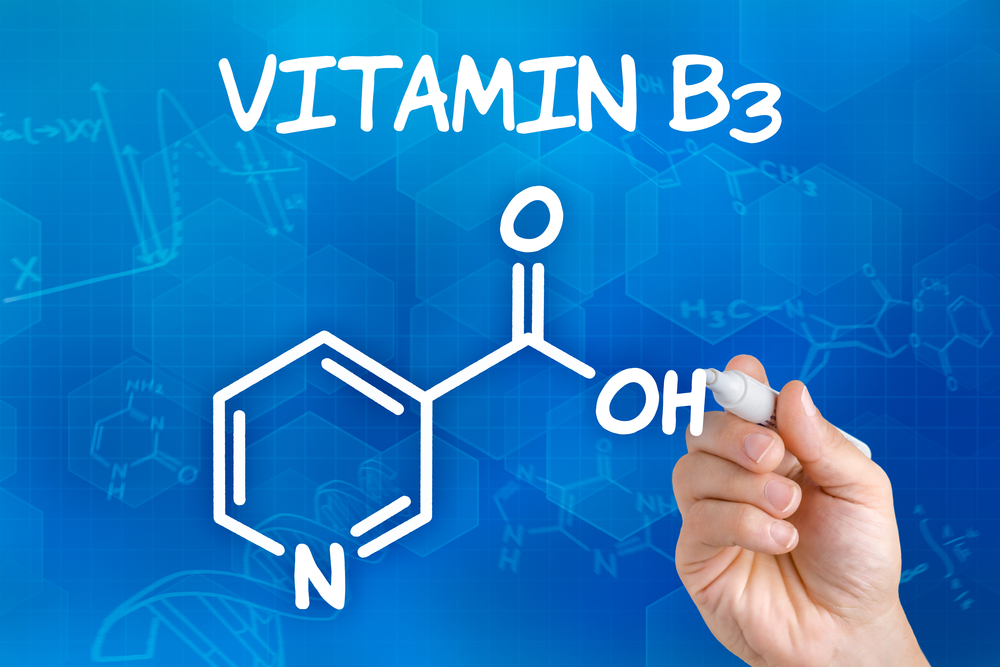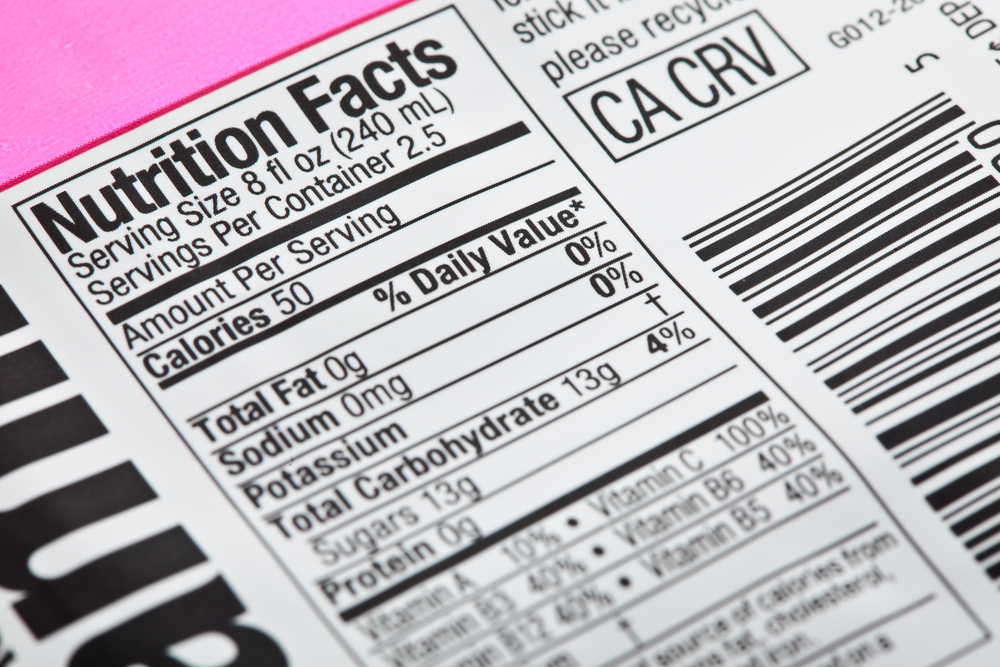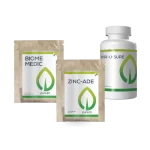Niacin or vitamin B3 is one of the eight B vitamins. Its job is to help synthesize coenzymes involved in over 400 biochemical reactions that help the body obtain energy from the food you eat. The body makes a small amount of niacin from the protein tryptophan. The rest of your daily recommended amount comes from the foods you eat.
Foods that are high in niacin are chicken, meat, fish, eggs, yeast, milk, tortillas, cereal grains and greens. Some foods may be fortified with niacin when produced.
Niacin is important, it helps our nervous system, digestive system, and keeps our skin healthy. The body does not store niacin so any excess you would get in supplemental form can be removed from the body in your urine.
Niacin deficiencies are rare. People who are at risk of a deficiency may be malnourished, have anorexia nervosa, liver failure, or alcohol abuse. Symptoms of a deficiency are skin rash, bright red tongue, vomiting, constipation, diarrhea, depression, fatigue, headache, memory loss, and loss of appetite.
Daily Recommendations for Niacin:
- Adult Males – 16 mg
- Adult Non-Pregnant Females – 14 mg
Health Benefits of Niacin
Protects Your Skin
Niacin is good for your skin. Niacin has been shown to help protect the skin from sun damage. Whether you take niacin orally or in a lotion it can help protect your skin. It has also shown to prevent some skin cancers, as well as lower your risk of developing certain types of skin cancers.
Helps Lower Cholesterol
Another use of niacin is to help lower your cholesterol levels. Niacin increases HDL, or good cholesterol levels. While reducing LDL or bad cholesterol as well as lowering triglyceride levels too. Lowering your cholesterol levels can help decrease the risk of heart disease. This is not always a recommended treatment for lowering cholesterol because the dosage has to be rather high to have any significant effects.
High doses of niacin can cause skin flushing, dizziness, rapid heartbeat, itching, nausea, vomiting, abdominal pain, diarrhea, gout, liver damage, and diabetes. When a high dosage of niacin is needed a health care provider may suggest starting with a small dose and working up to the bigger one, so your body adjusts to it gradually. High doses of niacin can also worsen allergies, and gallbladder disease.
Lowers Blood Pressure
Niacin can also help lower your blood pressure. Niacin helps widen your blood vessels which improves blood flow. This results in lowering blood pressure. In one study it was shown that taking only 1 mg of niacin a day helped lower the risk of high blood pressure by 2%. So taking about 100 mg a day was shown to have a significant impact on people trying to lower their blood pressure.
Good for Type 1 Diabetes
Niacin can also help benefit those that have type 1 diabetes. Type 1 diabetes is an autoimmune disease that causes the body to attack and destroy insulin creating cells in the pancreas. Niacin may help protect these insulin cells and lower your risk of even developing type 1 diabetes if you are at risk.
If you have type 2 diabetes you need to be extremely careful when taking niacin. Though it can help lower high cholesterol that people with type 2 diabetes may have, it can also increase blood sugar levels.
Improve Brain Health
Niacin has been shown to help boost brain function. Brain fog may be associated with a niacin deficiency. Niacin can be used as a treatment for some types of schizophrenia. Niacin can help undo the damage to brain cells. There have been studies of the use of niacin for people who have Alzheimer’s disease and that niacin may help keep the brain healthy even with this disease.
Conclusion
Niacin is one of the eight essential B vitamins your body needs. You can get your daily recommended amount of niacin from the foods you eat, or in supplemental form. Some prescriptions of niacin may be used to help treat some medical conditions. It has been shown to help lower risk of skin cancers.
Niacin may interact with other medications so before you start taking a supplement it is important to speak with your healthcare provider. High dosages may have side effects, but it can be a treatment option for people with type 1 diabetes, or high cholesterol.
Niacin is good for your skin and your brain? Are you getting enough vitamin B3? #HealthSurgeon
Purium offers Revive-It-All as an all-natural “turn back the clock” formula for people looking to fight off the signs of aging. This all natural supplement contains two very important ingredients that have been proven to help reverse memory loss and increase energy and vigor: Acetyl L-Carnitine and Alpha Lipoic Acid. It may also enhance circulation and lower blood pressure.
Sources:
https://www.mayoclinic.org/drugs-supplements-niacin/art-20364984
https://www.healthline.com/nutrition/niacin-benefits#TOC_TITLE_HDR_9
https://www.webmd.com/diet/supplement-guide-niacin









